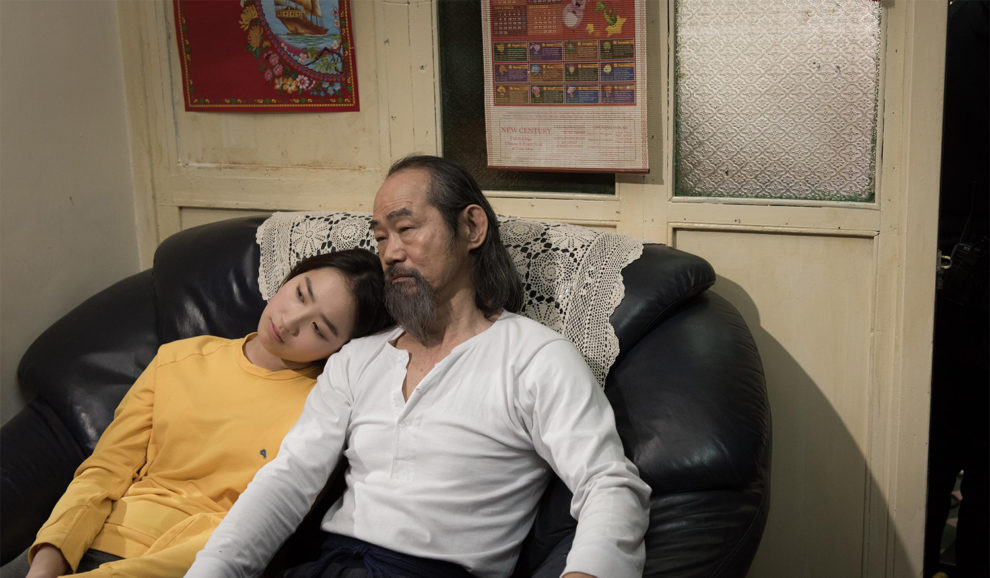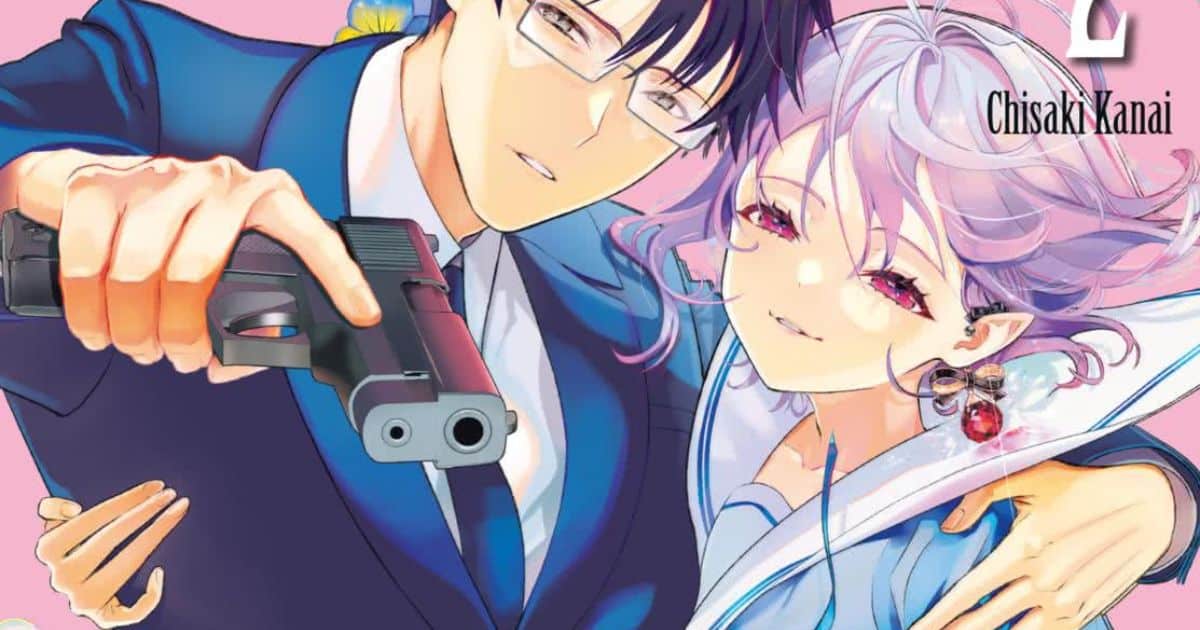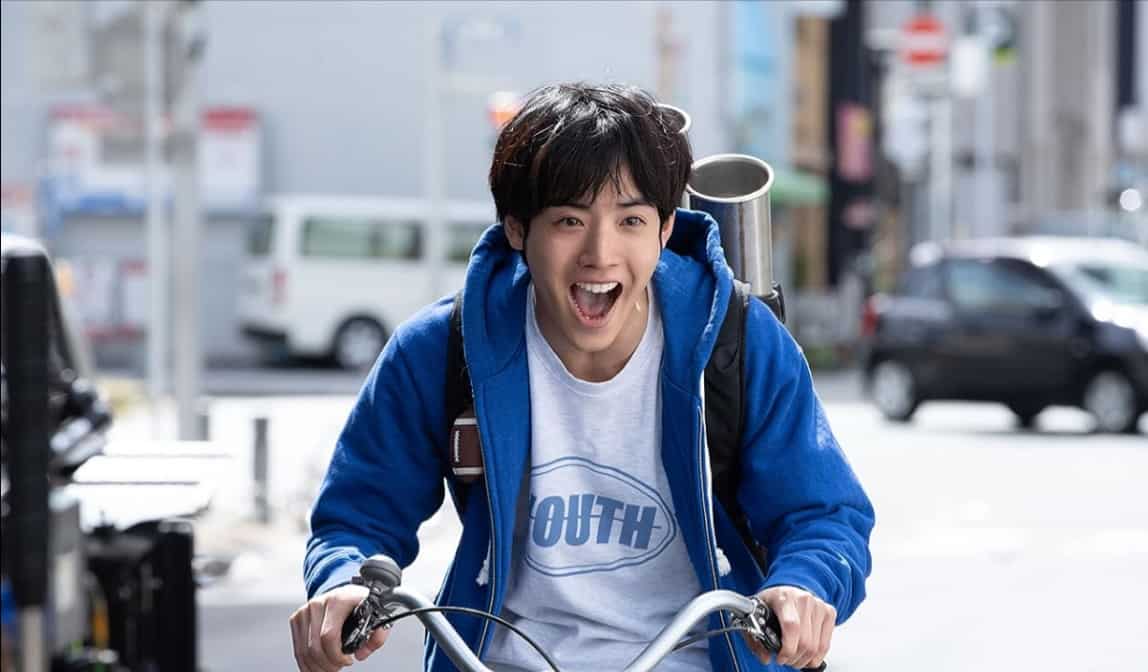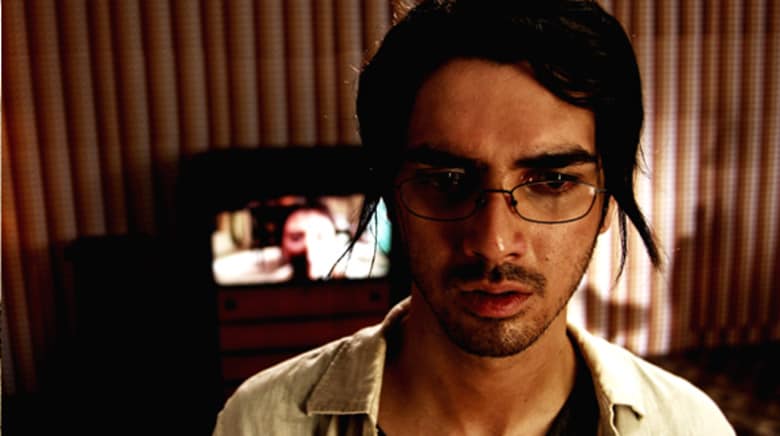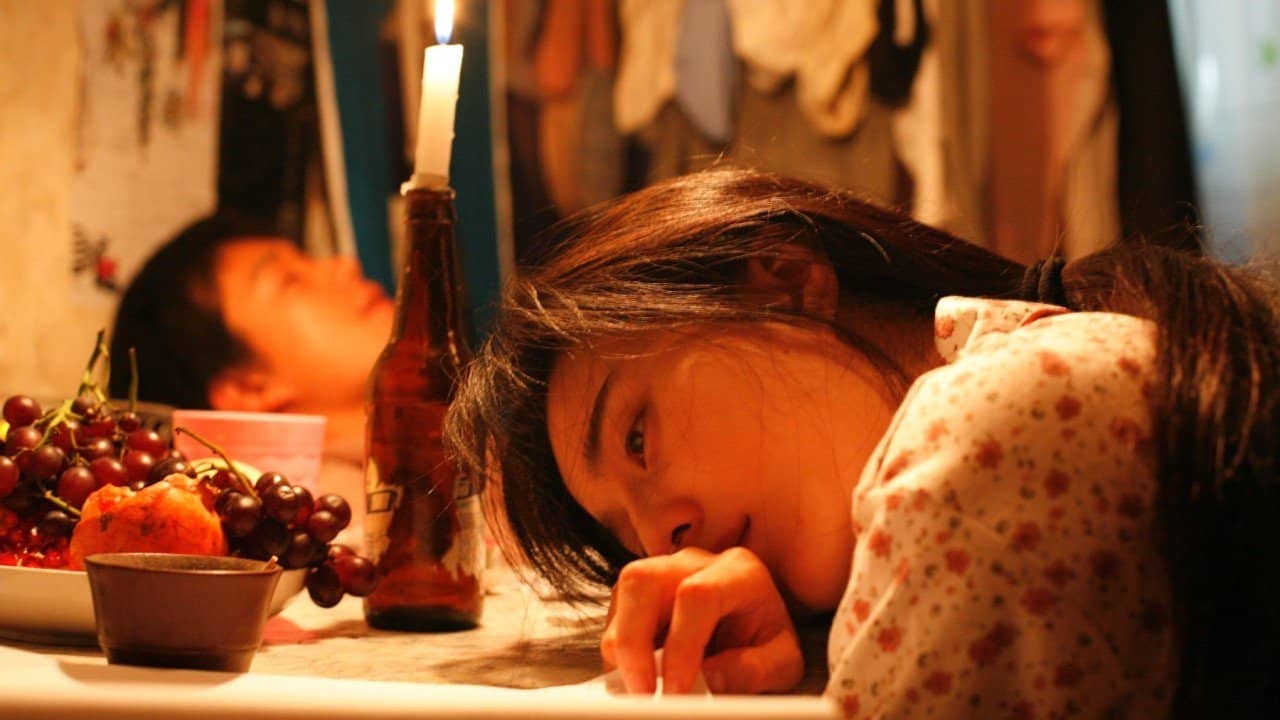Seven short films, shot on 35mm and directed by 7 of Hong Kong's most acclaimed and significant directors, form a heartfelt symphony about Hong Kong. In the original plan, conceived by Johnnie To, this anthology was going to be an 8-director piece, called “Eight & a Half”, where each director was given the task to illustrate the zeitgeist of a decade of Hong Kong's recent history, starting in the 50's. Unfortunately, John Woo had to leave the project due to personal issues, and the omnibus' title was changed into “Septet”. Firstly presented at Cannes Film Festival in 2020, “Septet: The Story of Hong Kong” is now finally released in cinemas in China, on the occasion of the 25th anniversary of the Handover.
Septet: The Story of Hong Kong is screening at Asian Pop Up Cinema
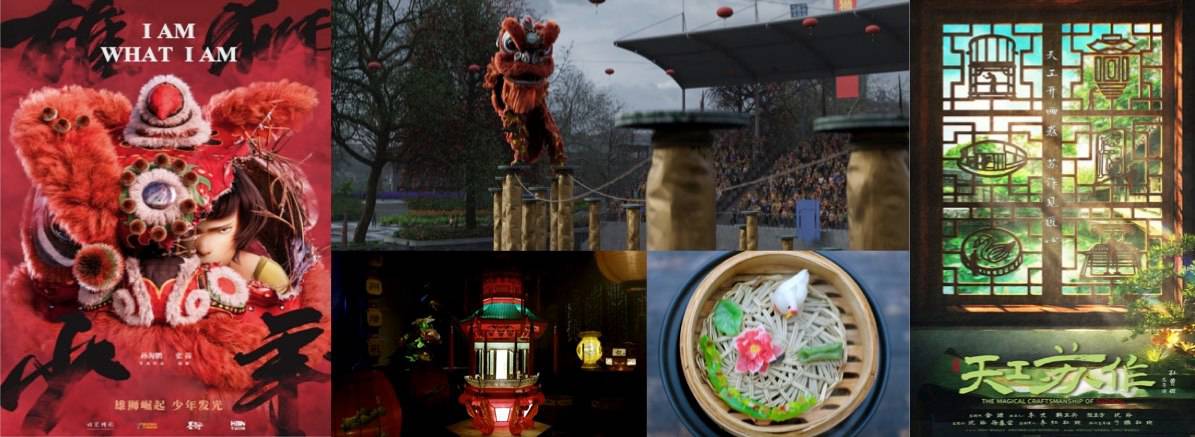
Sammo Hung's “Exercise”
In the first of the seven, Sammo Hung tell us a story based on his own memories. It's 1950's and his old Cantonese opera school master Yu Jim-yuen (played here by his son Timmy Hung, a role that Sammo himself had played a long time ago in “Painted Faces”) is tricked by his pupils into trusting them. In fact, they happily avoid exercising when the master is not checking, but when the deception is discovered, Sammo as the leader of the pack will get the hardest punishment. Considering the exceptional skills and career of Sammo Hung, we all realise that his master did the right thing (even if in a very old-fashioned manner) showing the benefits of hard work and discipline as the director explains, talking directly to the audience at the end. It is a lovely episode, full of nostalgia and admiration for the “working hard” mentality of Hong Kong people, and also a great spectacle of acrobatic skills from the young cast.
Ann Hui's “Headmaster”
Ann Hui reprises the theme of school and education in her sweet and sad episode where she sketches two very compassionate human beings, a headmaster (Francis Ng) and an English teacher, Miss Wang (Sire Ma), dealing with a group of pesky elementary school children in the 60's. In a series of flashbacks and flashforwards, the story is told with the director's trademark humanistic touch, through the grateful memories of the pupils in a school reunion. A strong emphasis is placed onto the two teachers' empathy and understanding of the difficult life the poorest pupils were going through, forced by their families to work long hours as street sellers after school. Their humanity is expressed in little gestures of kindness and generosity that have left a strong mark, as we can see in the true love expressed by the grownup students. It is an effective and affectionate snapshot of Hong Kong in the 60's.
Patrick Tam's “Tender is the Night”
Jumping to the 1980's (as the previous decade was originally given to John Woo) Patrick Tam's contribution is an almost theatrical, one-set mise-en-scène of a young couple's struggle to accept separation. It's for both (Jennifer Yu and Gouw Ian Iskandar) the first true love and their last night together as the morning after the girl will follow her family emigrating in the UK. Underlined by a Cantopop score that effectively sets the timeframe, the episode is reminiscent of the romantic films of that era, but its strongest point is the topicality of the migration issue. The 80's is in fact the decade that cemented a feeling of uncertainty towards the future and when an increasing number of people contemplated leaving the homeland in hopes of a brighter and safer future.
Yuen Woo-ping's “Homecoming”
Starting on the Handover year 1997, and in tune with the best tradition of Hong Kong cinema, Yuen Woo-ping's episode is a truly enjoyable and poignant gem, packed full of nostalgia, comedy, and love; one of my favourites. A wonderful Yuen Wah plays a former kung fu champion grandfather who loves practicing every day and watching old martial arts movies. He is joined by his westernised teenage granddaughter (Ashley Lam) who is finishing school in Hong Kong and shortly after will join the parents already living abroad. Grandpa thinks he is looking after his unruly granddaughter and, at the same time, she thinks she's keeping an eye on her ageing grandfather. The generation gap is highlighted by their different taste in food, movies and superficial things, but their love and understanding has the power to bridge the gap and a strong bond resurfaces. It is a charming ode to the family love that connects tradition and modernity of Hong Kong, and a love letter to Yuen Woo-ping's own martial arts background.
Johnny To's “Bonanza”
Probably the most anticipated episode of the bunch by Hong Kong cinema fans – as Johnny To rarely directs nowadays – “Bonanza” delivers the director's typical snappy and humorous narrative style in a story that manages to portrait one of the most troubled and roller-coast-ed decade in Hong Kong history, just from a table of a cha chaan teng (the typical Hong Kong café). Starting at the end of the 90's and spanning across the change of the century, three friends (Tony Wu being one of them) around the same table, are busy trying to make a quick buck, taking advantage of the constantly changing economic landscape of that time. Sailing through the dot-com bubble and the SARS epidemic, the trio is after stocks, shares in new internet companies or cheap apartments in the SARS-plagued Amoy Garden Estate, in a mood that reprises the exploration of human greed during financial crisis that we have seen in To's “Life Without Principle”. Food is often a meaningful element in To's movies and here too, you can see the evolution of the humble cha chaan teng's offering, following the economic bubble, from humble café fare to a more fancy set-up in the new century, and – funny enough – the menu in “Bonanza” is the source of unexpected karma.
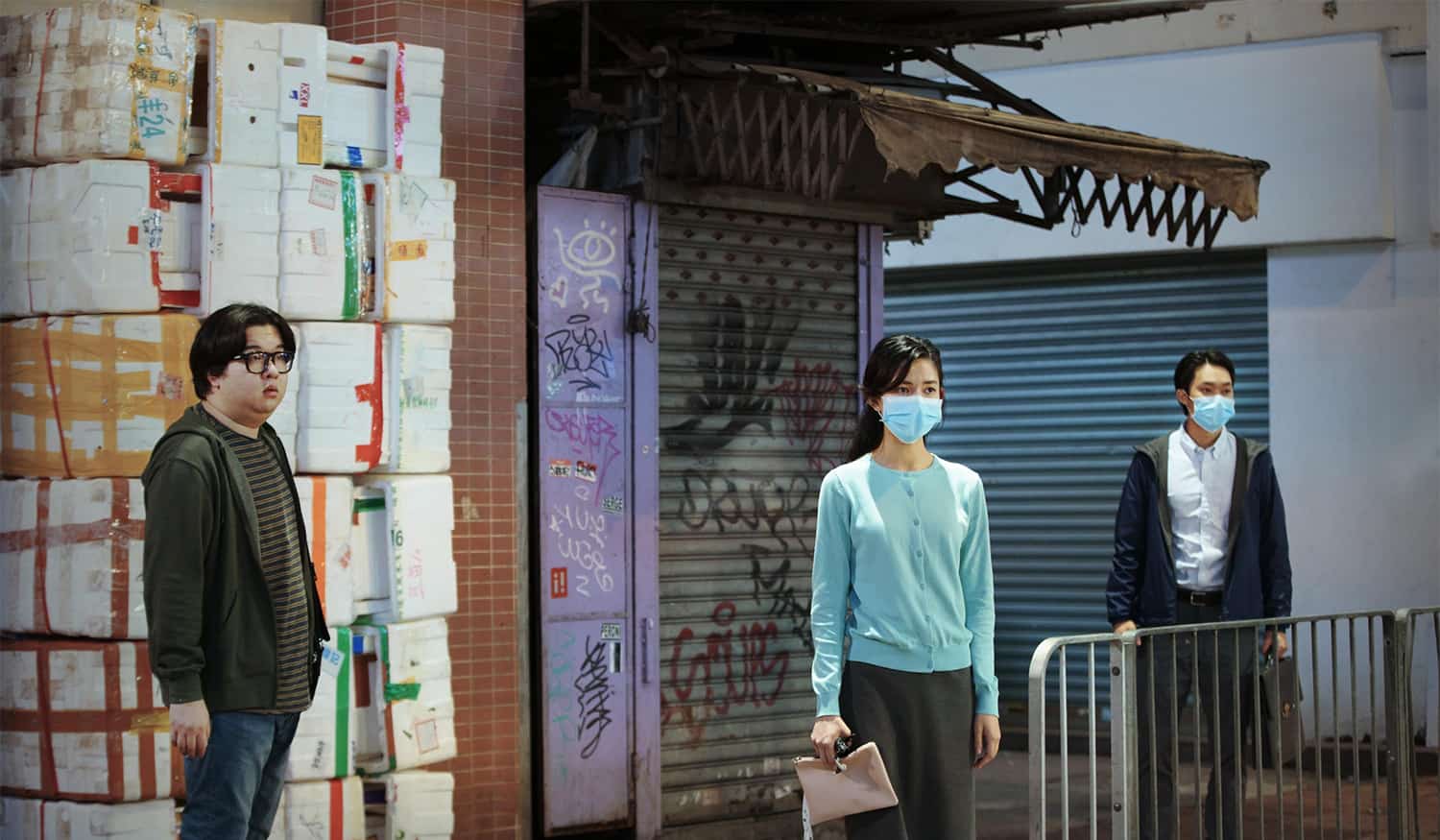
Ringo Lam's “Astray”
Diaspora, nostalgia and torn families are also a the core of the late Ringo Lam's segment, “Astray”. A man who has been living abroad for a long time (Simon Yam), returns to Hong Kong to join his family in the 2010s and finds himself lost in a city that doesn't resemble anymore the Hong Kong he remembers. The opening sequences are set in the busy and modern Central area of Hong Kong, on the backdrop of big designer shops that have taken the place of old, familiar landmarks, like the famous Queen's Theatre cinema. The man struggles to adapt but his love for the city is strong, and he finds solace living in the ancestral home in the New Territories, far from the modernity of Central. His concerns are mainly for his son who also wants to go and start a new life abroad. The strong melancholy of the episode and the poignant nostalgia for the old times is certainly heart-breaking, even more so knowing that the director died soon after completing the shooting. Keep tissues in hand for the moving ending.
Tsui Hark's “Conversation in Depth”
Fortunately, thanks to Tsui Hark's contribution set in a present-but-maybe-future time, this anthology closes on a comedy note. The short and funny episode is set in a mental institution where a psychiatrist and a patient (Emotion Cheung and Cheung Tat-ming) discuss their identity. In a classic mental asylum gag, the male patient claims to be a woman called Ann Hui first and Maggie Cheung later, but the whole dynamic is turned upside down as we discover that the two are observed by two other doctors who are also under scrutiny from the director himself. Funny and surreal, “Conversation in Depth” playfully touches themes of losing the sense of self and a deep-rooted Hong Kong identity crisis, while praising Hong Kong directors and their audience too.
All in all, despite (or probably thanks to) the diversity of the seven episodes, “Septet: The Story of Hong Kong” is a homogeneous and effective portrait of Hong Kong in the last few decades, in which the city went through significant transformations. Transience, hard work, nostalgia, resilience, family bonds, diversity, they all emerge from the anthology as traits that define Hong Kong and its people. With its topicality and familiar directors and cast “Septet” is bound to thrill the fans of Hong Kong cinema, but also to please more casual audience with its mix of gentle comedy and melancholic, nostalgic narrative.


